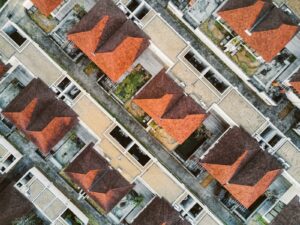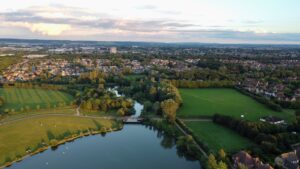In a bid to shake up housing policies to ensure more properties are constructed, the government have announced plans to scrap EU-era water pollution restrictions.
Plans to achieve net zero by 2030 may now be a distant memory since the government unveiled their plans today, but within the next seven years 100,000 new homes could be constructed near waterways in protected areas.
As it stands, Natural England rules mean 62 councils can’t allow new developments to be built unless developers can prove their projects are ‘nutrient neutral’ – developments should not add extra nutrients to surrounding water – in protected areas. Although extra nutrients may sound positive, flooding an area with substances such as phosphates and nitrates can reduce the quality of water, harm wildlife and cause excess algae growth.
Following the announcement, the government have claimed that the number of new homes affected by water pollution is ’very small’ and will be offset by a £280m investment.
However, the news has not been well accepted. The Wildlife Trust, a federation of 46 independent wildlife conservation charities covering the UK, have called the decision ‘disgusting behaviour’.
Craig Bennett, CEO of the Wildlife Trust, have claimed the change will result in more faeces infecting rivers and will not fix root causes of the current housing crisis.
Although, despite the homes ruining natural land and adding to river pollution, they could deliver an extra £18bn in economic activity.
Commenting on the news, Prime Minister Rishi Sunak said a ‘disproportionate and poorly targeted old EU ruling’ had blocked thousands of homes being built in the UK.
Mr Sunak said: ‘Thankfully we can now reverse that, and alongside that we are investing hundreds of millions of pounds to continue protecting and enhancing our precious natural environment.’
Image: Gunnar Ridderström

















Leave a Reply